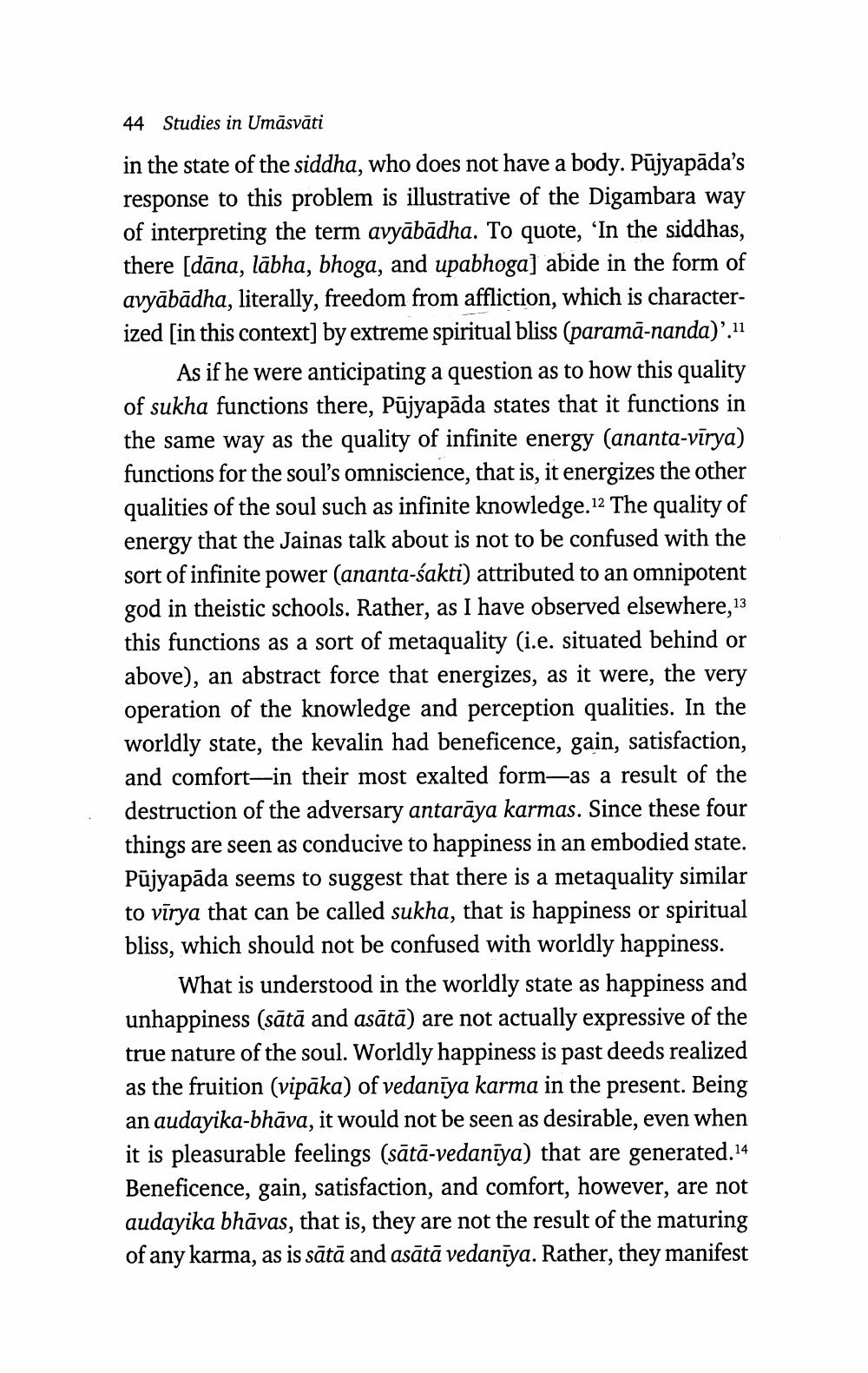________________
44 Studies in Umāsvāti
in the state of the siddha, who does not have a body. Pūjyapāda's response to this problem is illustrative of the Digambara way of interpreting the term avyābādha. To quote, 'In the siddhas, there [dāna, lābha, bhoga, and upabhoga] abide in the form of avyābādha, literally, freedom from affliction, which is characterized (in this context] by extreme spiritual bliss (paramā-nanda)'.11
As if he were anticipating a question as to how this quality of sukha functions there, Pūjyapāda states that it functions in the same way as the quality of infinite energy (ananta-vīrya) functions for the soul's omniscience, that is, it energizes the other qualities of the soul such as infinite knowledge.12 The quality of energy that the Jainas talk about is not to be confused with the sort of infinite power (ananta-śakti) attributed to an omnipotent god in theistic schools. Rather, as I have observed elsewhere,13 this functions as a sort of metaquality (i.e. situated behind or above), an abstract force that energizes, as it were, the very operation of the knowledge and perception qualities. In the worldly state, the kevalin had beneficence, gain, satisfaction, and comfort—in their most exalted form—as a result of the destruction of the adversary antarāya karmas. Since these four things are seen as conducive to happiness in an embodied state. Pūjyapāda seems to suggest that there is a metaquality similar to vīrya that can be called sukha, that is happiness or spiritual bliss, which should not be confused with worldly happiness.
What is understood in the worldly state as happiness and unhappiness (sātā and asātā) are not actually expressive of the true nature of the soul. Worldly happiness is past deeds realized as the fruition (vipāka) of vedanīya karma in the present. Being an audayika-bhāva, it would not be seen as desirable, even when it is pleasurable feelings (sātā-vedanīya) that are generated. 14 Beneficence, gain, satisfaction, and comfort, however, are not audayika bhāvas, that is, they are not the result of the maturing of any karma, as is sātā and asātā vedanīya. Rather, they manifest




